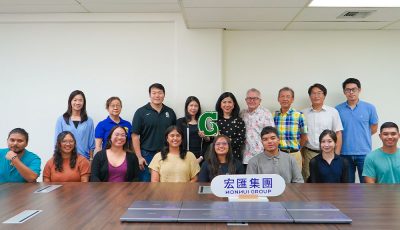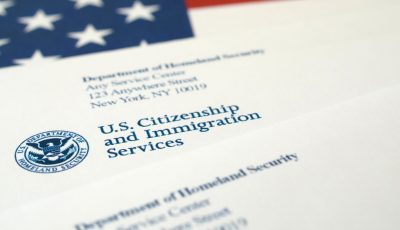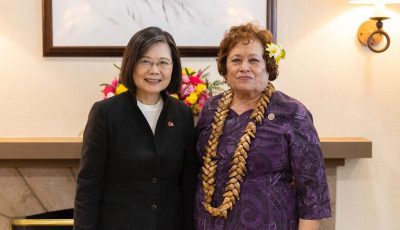Order by consent or politics of dissent
The dichotomy is not dissimilar to the common mistake of depicting China as Red Commie, and the mass protests against anything CCP as democratic. The common terms used are CCP’s “abuse of power” and “corruption” in government, while mass action of any kind is a people’s revolt asserting democratic longings.
Al Jazeera (Al-ğazīrah al-ʿarabiyyah), one of the world’s largest news networks, watches over the fascination with a Guangdong village northeast of Hong Kong called Wukan, approximately of the same latitude as the southern city of Kaohsiung in Taiwan. We relate this trivia because Taipei News reported on a letter to the local Kaohsiung police from Guangdong to investigate the family of an arrested person. An officer at the police station was quoted as saying: “What is going on here? Is Taiwan part of China now? They are ordering us to follow up on an investigation.” There are set ways of making the request without making it appear like the two are related to each other!
We add the notion of “one China, two systems” guiding the mainland’s connection to the island nation, as well as China’s relationship with the former British colony of Xiang Gang (HK) and the Portuguese enclave of Aomen (Macau). Both Beijing and Taipei sees Taiwan as part of China; the conflict is on who calls the shots.
Human rights abuses in Taiwan took a grimmer look than the record of the Red Commie in the mainland late ’60s, and when Nixon trusted the Kissinger-Zhou Enlai protocol to travel and shake Mao’s hands in 1972, the Republic of China (ROC-Taiwan) got more isolated and the People’s Republic of China (PRC-Beijing) displayed its rosy cheeks.
“One China, two systems” was Deng Xiaoping’s genius, negotiating with Meg Thatcher for the turnover of Xiang Gang (HK) back to China. Taipei consented without conceding the governance issue. In the Olympic Games, however, Taiwan competes as Chinese Taipei with its own Olympic flag. When a medal is won, as two gold were earned in 2004, the PRC anthem is played and the PRC flag is raised. It is not for nothing that the primary symbol of Sinosphere is the yin-yang whose strength is in balance rather than conflict.
Beijing draws Xiang Gang closer but HK students protested in Occupy Central last year and the Umbrella Movement this year, fueled by an external audience primed to see nothing but a monster of Commie Red, never mind that the practice of democracy is hardly in HK’s social genes nor a trait of the Imperial Brit’s watch over the colony. The Victoria Peak and its environs were ruled on single malt at the Jockey Club in Happy Valley!
We say the same with the Protest or Siege of Wukan, dubbed as a democratic process but began as a local request to get the CCP higher-ups to intervene in a real estate affair. China as a socialist state does not have private real estate properties. The land farmed is assigned by the state to workers. When eminent domain is exercised, the farmer’s compensation rate is at a farm’s shown productive capability.
Since the mid-’80s, the government sponsored real estate development that saw the increase of property values in the “market” had the farmers perceive that they were not fairly compensated. I live in an apartment at a former farmland in Shenbei, a unit in a four-storied complex among 12 developed by Hutchinson of HK with a few more to go, the built ones all fully subscribed to but eight remaining unoccupied.
“Abuse of power” is an HK media accusation of the Communist Party. Beijing added “corruption” as a party internal disease attached to abuse of power when CCP members take personal advantage of their position. My favorite Xi Jinping quote is, “One cannot work for the government and be rich at the same time.” Ex-PLA Wang Jianlin of humble beginnings was chairman at 35 of the then-government-run Wanda in 1989. Today he is chairman of Dalian Wanda Group, China’s largest private real estate developer.
There are almost 88 million members of the CCP, more than the membership of the Democratic (43 million) and Republican (31 million) parties in the United States. Of people, China has 1.357 billion (2013) compared to the U.S.’ 318.9 million (2014). There are more party members in China than in the U.S. but on people count, there are 4 Chinese for every American, and 1 in every 5 people on the planet.
A “corruption” story of my familiar is a young CCP brother who blurts out over dinner that the province plans a new settlement in a farm area. The elder brother quietly takes the information and inconspicuously develops as much real estate as he can. Ten years later, he manages three tall 30-floor buildings, plus. Over another family gathering where it is customary to pass out red envelopes with portraits of Mao, he hands a fat envelope to his brother. He had been lucky in business, he says.
In some quarters, that is corruption. In others, that is filial beneficence.



























